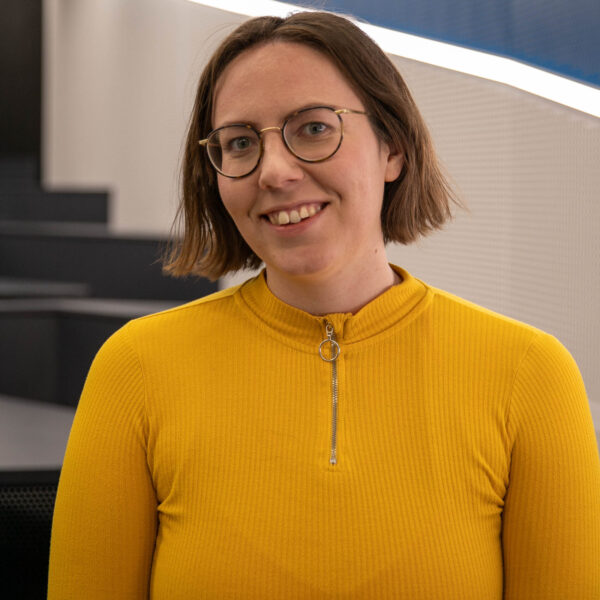
What is your position or role in the DESI project?
I am a postdoc, and within DESI, I co-lead the galaxy lensing topical group.
Where were you born?
I was born in Vilnius – the capital of Lithuania, which is a small country in Europe, next to the Baltic Sea.
Where do you live now?
I currently live in Melbourne, Australia.
What do you do as part of DESI?
My involvement in DESI is focused on working towards combining it with photometric weak lensing surveys. The weak lensing surveys measure how much the observed shape of galaxies is bent by the structure (foreground galaxies) that the emitted light travels trough to reach us. DESI is a great probe of such foreground structure and so the two types of measurements are complimentary. In my own research I am most interested in finding ways to consistently perform such combined analyses while making use of the full information of the two point galaxy clustering measurements and meaningfully interpret the resulting cosmological constraints. As a co-lead of the galaxy lensing topical group I am responsible for overseeing the different analyses that test a range of models and assumptions needed for a successful combination of the two different types of observations.
What is the most interesting or exciting thing about your job?
I love hearing new perspectives on familiar concepts that deepen my understanding and allow me to see how these concepts fit in the bigger picture in a more cohesive way. I also always appreciate all the creative ways that people solve difficult problems. In any kind of combined analysis one usually needs a lot of expertise and imagination to bring together the separate approaches that might have originally been very different from each other. I am always so impressed by the way my colleagues solve these problems and I am very grateful to be learning from them!
Any advice for an aspiring scientist?
My most generic advice is to try and make sure that the choices you make reflect the things you enjoy, whether it is the topic you are passionate about or inspirational people you want to learn from. While there are many frustrating moments in science, it is important that, overall, the process towards completing a research project is in itself interesting and rewarding – and don’t forget to celebrate the little wins along the way! My second piece of advice is to not let the image of what other scientists are like determine what you are supposed to be like to be successful. It is great to get inspiration and guidance but, most importantly, find what works for you.
What do you do for fun?
I enjoy going to galleries and concerts, trying out different coffee, exploring new places. I also love swimming and after moving to Melbourne I’ve started learning rowing as well, which has been so much fun and so rewarding!
If you weren’t a scientist, what would be your dream job?
I think I might quite enjoy doing a different creative job – I used to write a lot in school and I would love to go back to that. In university I used to work at a coffee shop in an art gallery which combined two of the things that bring me much joy, so perhaps a barista-gallery curator would be another fun occupation!
What excites/interests you most about DESI?
The shear size of the dataset is so impressive – comparing it with the previous galaxy surveys and seeing how far we have come from the first clustering observations is truly awesome. The fact that we are also able to model the distribution of all these galaxies and use that to understand our Universe never ceases to blow my mind, it is such an incredible example of what humans can achieve when working together!